Are you feeling a bit overwhelmed about your upcoming court hearing? We totally get itâlife can throw unexpected curveballs, and sometimes you just need to ask for a little extra time. This article will guide you through crafting a respectful and effective letter to request a rescheduling of your court date. If you're ready to take that next step and ensure your voice is heard, keep reading to find out how to make your request stand out!
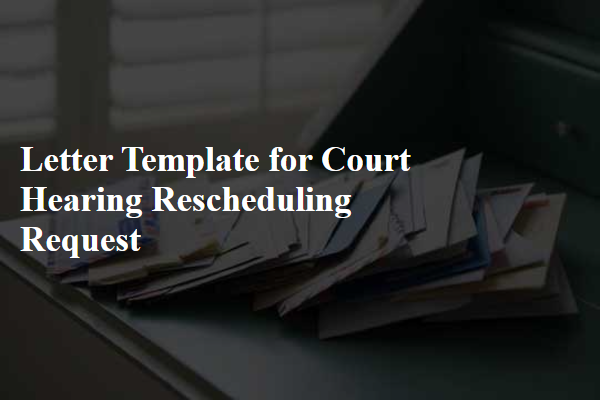
Clear Subject Line
Court hearing rescheduling request requires formal communication and specific details. Case number identifies the legal matter, ensuring proper documentation. Contact information allows the court clerk to respond efficiently. A clear subject line enhances visibility, such as "Request to Reschedule Hearing: Case #12345." Reason for rescheduling should be articulated, whether due to a scheduling conflict or unforeseen circumstances, while maintaining professionalism. Proposed new dates should accommodate the court's calendar and provide flexibility. Include a polite closing statement to express appreciation for their understanding.
Recipient's Accurate Information
A court hearing rescheduling request requires accurate recipient details to ensure proper communication. Essential components include the recipient's full name, representing the court or legal entity, the complete address including city, state, and zip code, the specific court division (Criminal, Civil, Family), and the case number related to the hearing. Attention to formatting is vital; using standard professional layout enhances clarity, ensuring that all necessary information is easily accessible. A well-structured approach improves the likelihood of a prompt and favorable response regarding the rescheduling.
Reason for Rescheduling
Court hearings can be rescheduled due to various reasons, including unforeseen circumstances such as illness, travel conflicts, or emergencies. For instance, an attorney may request a postponement due to a medical emergency requiring immediate attention, impacting their availability to represent a client effectively. Additionally, a plaintiff or defendant may need to reschedule if a crucial witness becomes unavailable, which could significantly affect the case's outcome. Courts typically require written notification of these requests, often using specific forms or templates to ensure clarity and documentation for official records. Submissions must often include details such as case numbers, parties involved, proposed new dates, and appropriate justification for the request. Timeliness of the request submission is also critical, often requiring a notice to be filed several days in advance of the original hearing date to respect court schedules and protocols.
Proposed New Date and Time
The process of rescheduling a court hearing involves addressing the court with a formal request that outlines the necessary changes. A clear statement of the proposed new date and time is crucial. For instance, suggesting a date that falls within the court's operating hours (generally weekdays between 9 AM to 5 PM) allows for smoother scheduling. Additionally, providing a reason for the rescheduling, such as personal conflicts, illness, or unforeseen circumstances, emphasizes the necessity of the request. Referencing the specific case number and names of involved parties creates context. Notifying the opposing party is also essential; this demonstrates respect for the court's time and fairness in proceedings.
Polite Closing and Contact Information
Polite closings are essential for maintaining a respectful tone, especially in formal communication related to court hearings. To conclude respectfully, consider phrases such as "Thank you for your understanding," or "I appreciate your consideration of my request." For contact information, include your full name, mailing address, phone number, and email address, ensuring that all details are accurate and up-to-date for effective communication. This allows the court or relevant parties to reach you easily regarding your rescheduling request.
Letter Template For Court Hearing Rescheduling Request Samples
Letter template of Request to Reschedule Court Hearing Due to Scheduling Conflicts
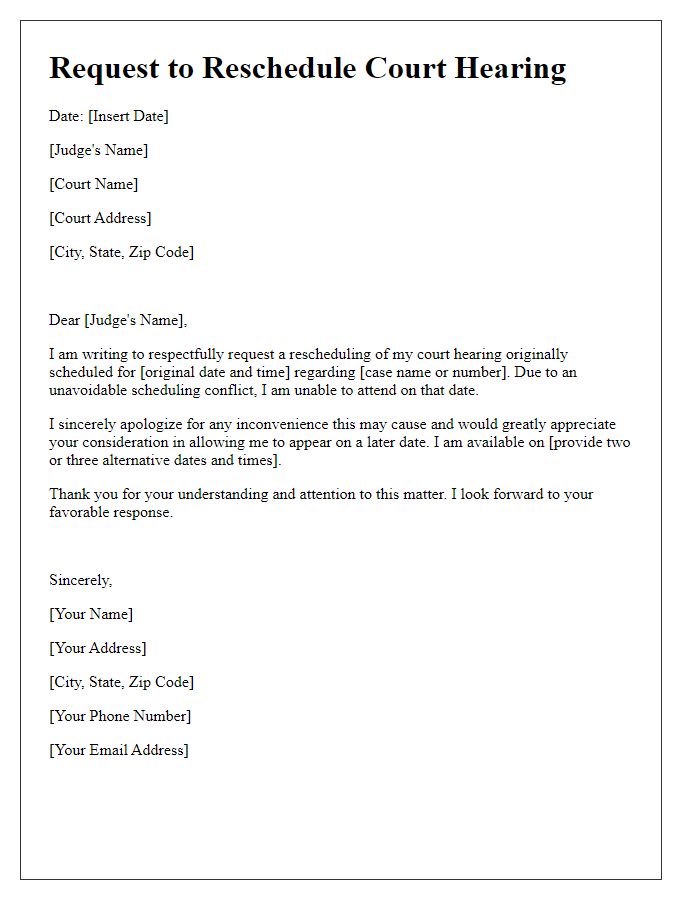

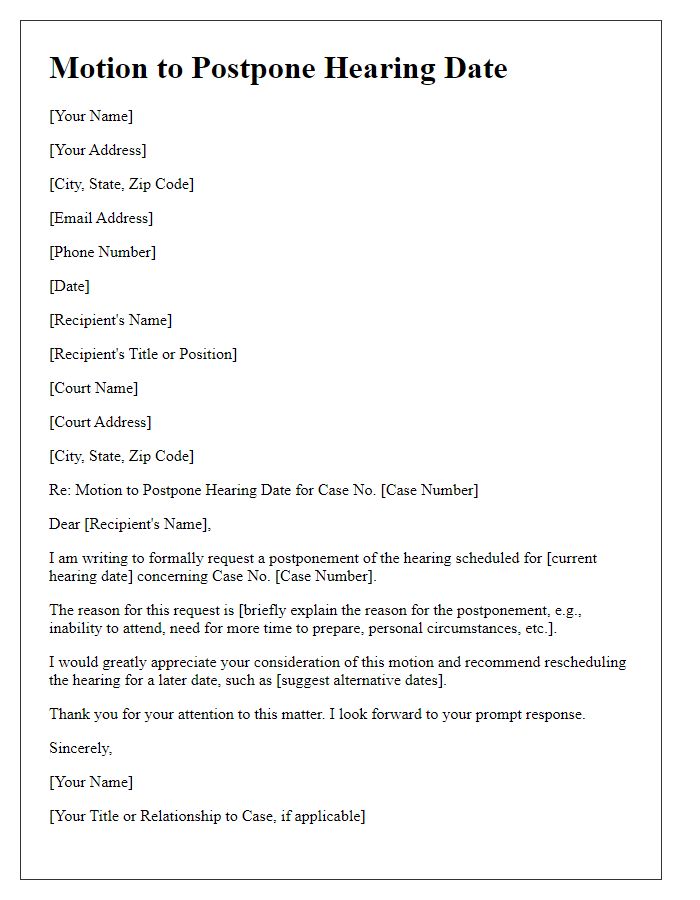
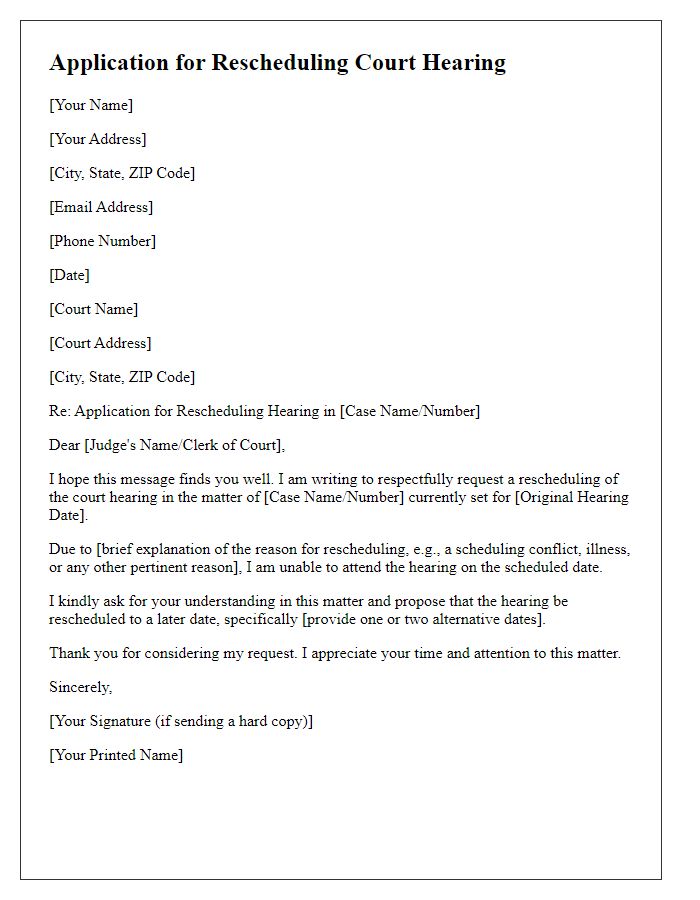
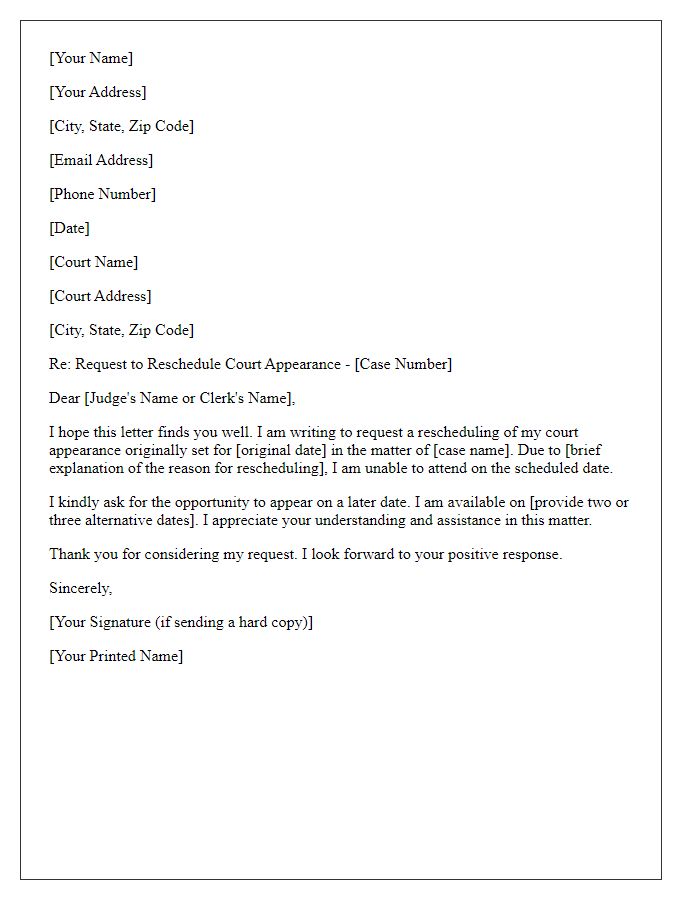
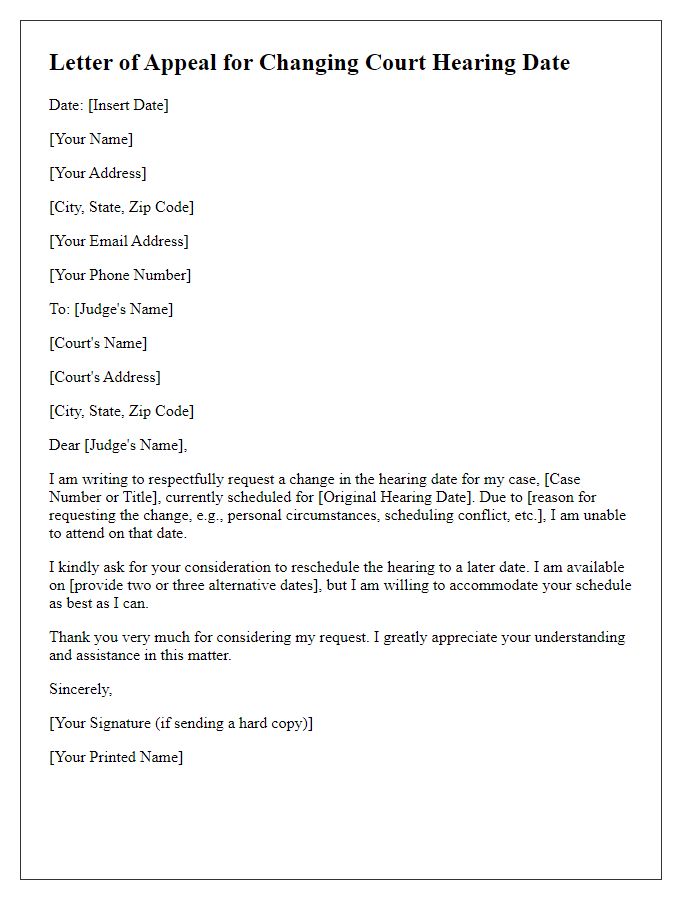
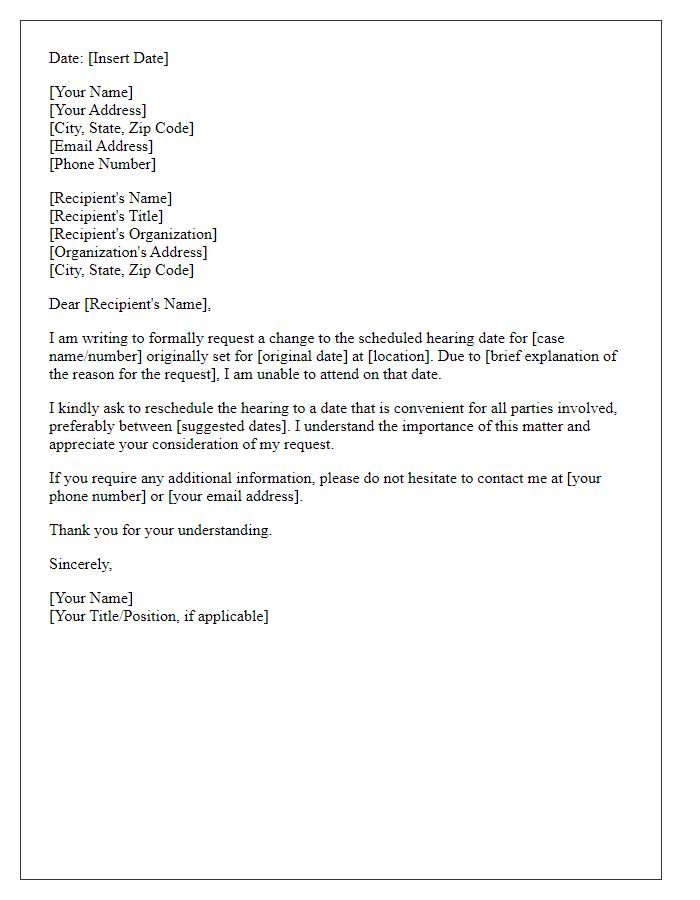
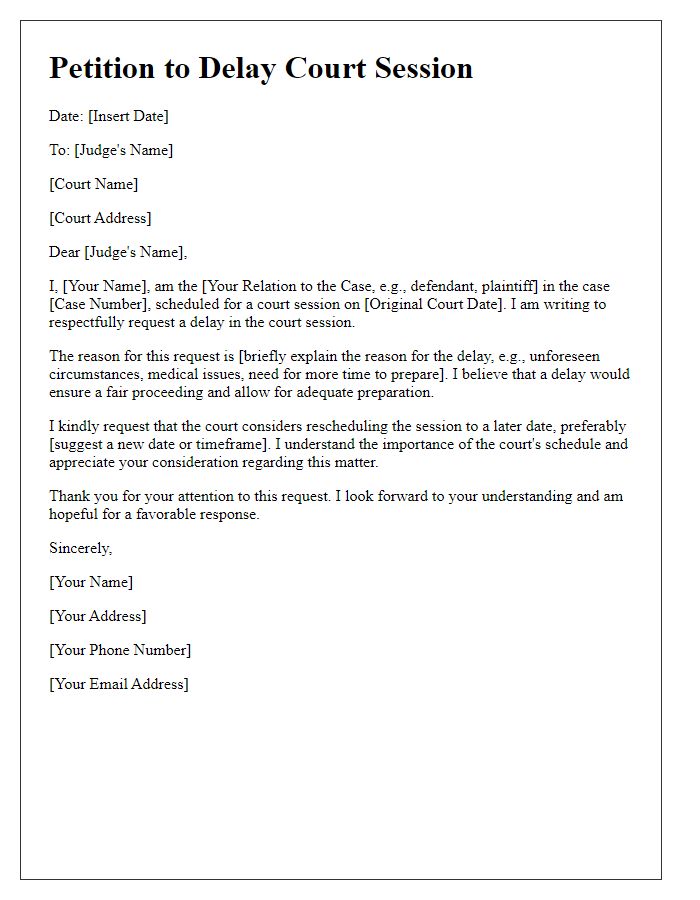
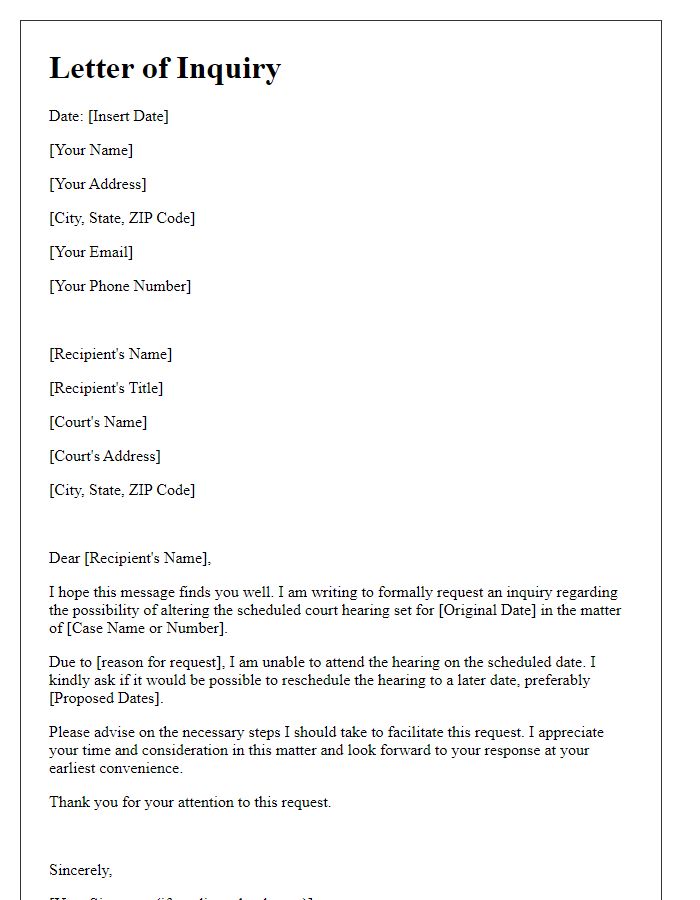
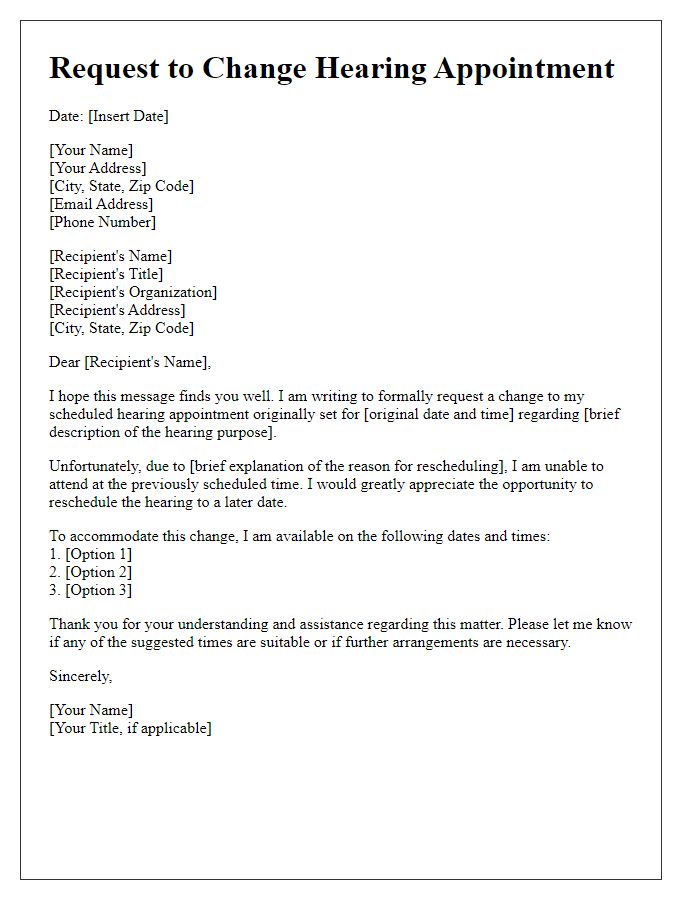
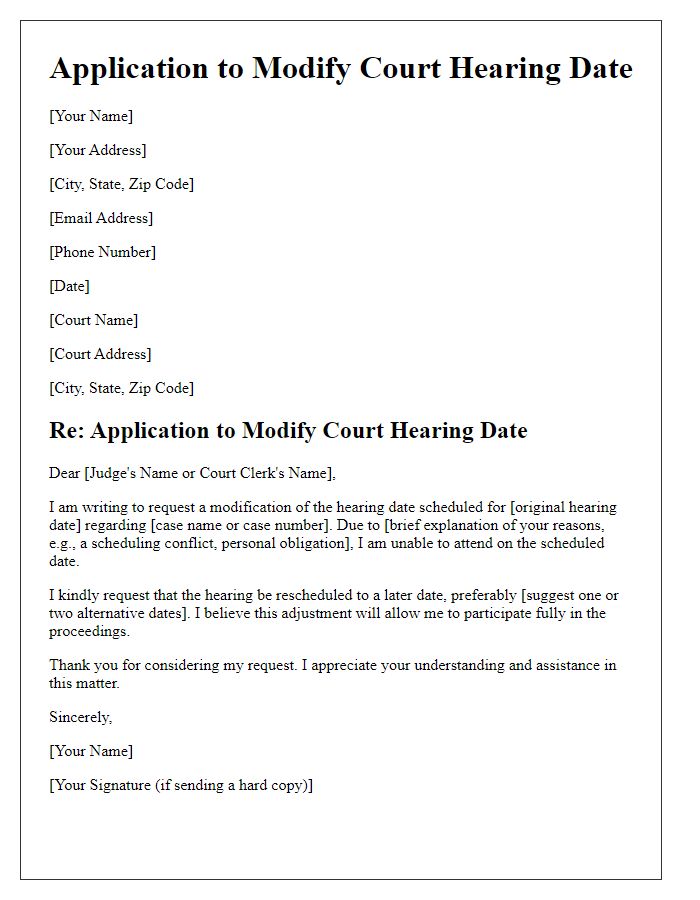


Comments